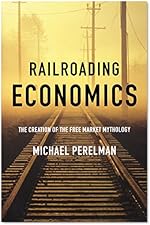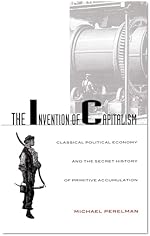Archive for May, 2009|Monthly archive page
North Korea’s Real Crime
I don’t like nuclear weapons, but for all the outrage regarding North Korea’s nuclear explosion, nobody seems to have noticed that this week the U.S. celebrated the opening of the $3.5 billion National Ignition Facility. The New York Times described project without mentioning its military purpose, except quoting the project director who “compared the project to feats like going to the Moon, building the atom bomb and inventing the airplane.”
http://www.nytimes.com/2009/05/26/science/26fusi.html?_r=1&ref=science
The NIF is supposed to simulate weapons tests without having to do anything as crude as exploding a bomb underground. Presumably North Korea should be condemned for being too poor to produce this cathedral of death near Berkeley, California.
p.s. I know that the authorities also wish NIF to create fusion power, but I doubt that it would have funding without its military “benefits.”
My Therapeutic Rant on the Current Economic Madness
During the Vietnam War, a U.S. soldier seems to have anticipated the spirit of the current economic policy, explaining: “we had to destroy the village in order to save it.” The difference today is that while the government destroys villages of the working classes, it is devoting enormous to improve the castles of the rich.
Anyone can see the care and feeding of bankers and financiers, while treating much of the rest of the economy with an iron fist.
The problem is compounded because alongside the federal stimulus, funding for state and local government is falling off the cliff, in effect, neutralizing much of the stimulus. This contradiction in economic policy is nothing new. A half century ago, E. Cary Brown showed him austerity in state and local governments undid much of the New Deal.
Brown, E. Cary. 1956. “Fiscal Policy in the ‘Thirties: A Reappraisal.” The American Economic Review, Vol. 46, no. 5 (December): pp. 863-66.
Nowhere is that policy divergence clearer than in California. A Republican minority blocks all tax increases. The budget deficit seems to increase by a few billions every few weeks. The answer is to eliminate welfare, slash payment to home healthcare workers, and decimate education.
I have been looking at papers by Greg Duncan showing the devastating effect of child poverty on children’s productive capacity as they mature. In my forthcoming book, The Invisible Handcuffs, I discuss literature that compares the consequences of child poverty on brain development, an effect that resembles the impact of a stroke.
Conservatives worry about future tax costs, but what if the losses in the capacity to pay costs exceeds the presumed future burdens of public debt.
Democratic Masters of Ineptitude
California needs a two-thirds majority to pass the budget. The hard-line Republicans, who are already doing poorly with the public, looked bad. After long delays, six Republicans offered to support a vicious budget, with modest tax increases on matters that left business and the wealthy unaffected. Republicans required that the Legislature agreed to put a number of very restrictive budget referenda on a special election. This strategy was a brilliant success in tripping up the Democrats, who mostly supported the measure, while both anti-tax forces and most unions opposed it.
Besides, if Prop 1A had passed, the state would have to put funds into a rainy day fund, which would have provided a tempting target for future tax cutters.
All but one insignificant measure that affected legislators’ salaries lost.
The media played the election is if it was a resounding victory for anti-tax forces. Even more cuts will hit education and the poor. And the Democrats will have no alternative to offer.
AIG: The Disaster of Regulator Shopping
The New York Times published a fascinating piece about how AIG managed to get itself regulated as a Savings and Loan by the Office of Thrift Supervision. Guess why? Light as bank regulation is, S&L regulation is even more lenient. And it paid off in the end, no?
Cyran, Robert. 2009. “Downfall of a Regulator.” New York Times (9 April): p. B 2.http://www.breakingviews.com/2009/04/08/OTS.aspx?sg=nytimes
“US financial regulators have spent the last several years in a race to impotence. The clear winner of this chase to the bottom is the Office of Thrift Supervision (OTS), the agency that served as chief financial regulator to a motley crew of credit crunch losers, including Countrywide, Washington Mutual, IndyMac and American International Group. Shuttering OTS would be a good first prize.” Continue reading
The Economics of Crisis and the Crisis of Economics
The Economics of Crisis and the Crisis of Economics
The reputation of economics rises and falls with the business cycle. In the late 19th century, when capitalism faced what was then called the Great Depression, the world held economists in very low regard. For example, Walter Bagehot, longtime editor of London’s The Economist, wrote:
Political Economy is not altogether satisfactory. It lies rather dead in the public mind. Not only does it not excite, the same interest as formerly, but there is not exactly the same confidence in it. Younger men either do not study it, or do not feel that it comes home to them, and that it matches with their most living ideas. New sciences have come up in the last few years with new modes of investigation, and they want to know what is the relation of economic science, as their fathers held it, to these new thoughts and these new instruments. They ask, often hardly knowing it, will this ‘science’ as it claims to be, harmonise with what, we now know to be sciences, or bear to be tried as we now try. [Bagehot 1885, p. 4]
Paul Romer’s Many Hong Kongs
I just got this from Stewart Brand, who organizes lectures at San Francisco’s Fort Mason. Romer is suggesting that less developed countries contract with capitalist nations to set up Hong Kong’s for them. What about the alternative, having capitalist nations let us set up little socialist republics to demostrate an alternative system.
This talk was the first public launch of an idea that Romer has been working on for two years.
His economic theory of history explains phenomena such as the constant improvement of the human standard of living by looking primarily at just two forms of innovative ideas: technology and rules.
Technologies rearrange materials with ingenious recipes and formulas. More people create more technologies, which in turn generates more people. In recent decades technology has enabled the “demographic transition” which lowers birthrates and raises income per person even higher as population levels off. Continue reading
Undercover in Burma
My former student, Ryan Libre, snuck into Burma to meet with the Kachin Independence Army.
He is one of my favorite students, even though he has a long-standing incomplete in one of my classes.
Our local weekly has a short story about his work.
California Fiscal Bait and Switch
I’m not an expert in fiscal policy. I don’t even play one on television. With that caveat, I would like to comment on the upcoming California special election.
Prior to the ratification of Proposition 13 in 1978, Gov. Jerry Brown was building up a rainy day fund to prepare for fiscal emergencies. Republicans argued that the state had no right to hoard “the people’s money.” A number of other factors are used to explain why Californians ratified Proposition 13. The most common culprit was the Serrano decision that was supposed to break the link between local property taxes and school funding, which was intended to reduce inequalities between school districts. Many people resented having to pay property taxes to support poor or minority kids. Also, there were some scandals with County tax assessors, but my recollection was that the rainy day fund rhetoric was the loudest. Continue reading
Computer Problem, Maybe Someone Can Help
I am running XP with the latest Firefox.
I cannot attach files in Gmail or Yahoo mail in Firefox on this computer. I can, using Chrome or IE & I can on my other computers where are set up similarly.
I have reinstalled Firefox & have run it in the safe mode. Then I can attach a file once then, but not a second file.
I have disabled the new way of loading files in Gmail, but that does not help. I have scanned the computer with Norton & with Spybot. They found nothing. I have no other symptom of a computer problem.
I have tried disabling Norton antivirus, but that did not help. I have had two technicians at my university help me for hours & they are stumped.
Also, if I past a chunk of text, say a paragraph, into Gmail, it hangs rather than sending the message. I have not tried this in Yahoo.
 Leave a comment
Leave a comment
 25 – The Confiscation of American Prosperity: From Right-Wing Extremism and Economic Ideology to the Next Great Depression
25 – The Confiscation of American Prosperity: From Right-Wing Extremism and Economic Ideology to the Next Great Depression 30 – Manufacturing Discontent: The Trap of Individualism in Corporate Society
30 – Manufacturing Discontent: The Trap of Individualism in Corporate Society Class Warfare in the Information Age
Class Warfare in the Information Age Railroading Economics: The Creation of the Free Market Mythology
Railroading Economics: The Creation of the Free Market Mythology Steal This Idea: Intellectual Property Rights and the Corporate Confiscation of Creativity
Steal This Idea: Intellectual Property Rights and the Corporate Confiscation of Creativity The Invention of Capitalism: Classical Political Economy and the Secret History of Primitive Accumulation
The Invention of Capitalism: Classical Political Economy and the Secret History of Primitive Accumulation The Perverse Economy: The Impact of Markets on People and the Environment
The Perverse Economy: The Impact of Markets on People and the Environment